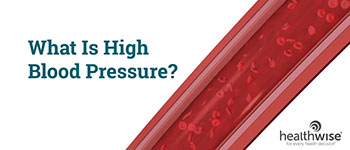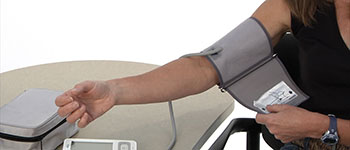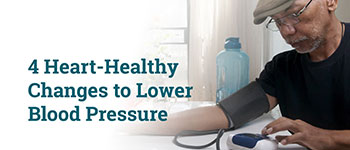Blood pressure is the force of blood pushing against the walls of your blood vessels as it moves from your heart to other parts of your body. Blood pressure normally rises and falls throughout the day. But if it stays high for a long time, it can damage your heart, your brain and your blood vessels, which can lead to health problems. The condition of high blood pressure is called hypertension.














